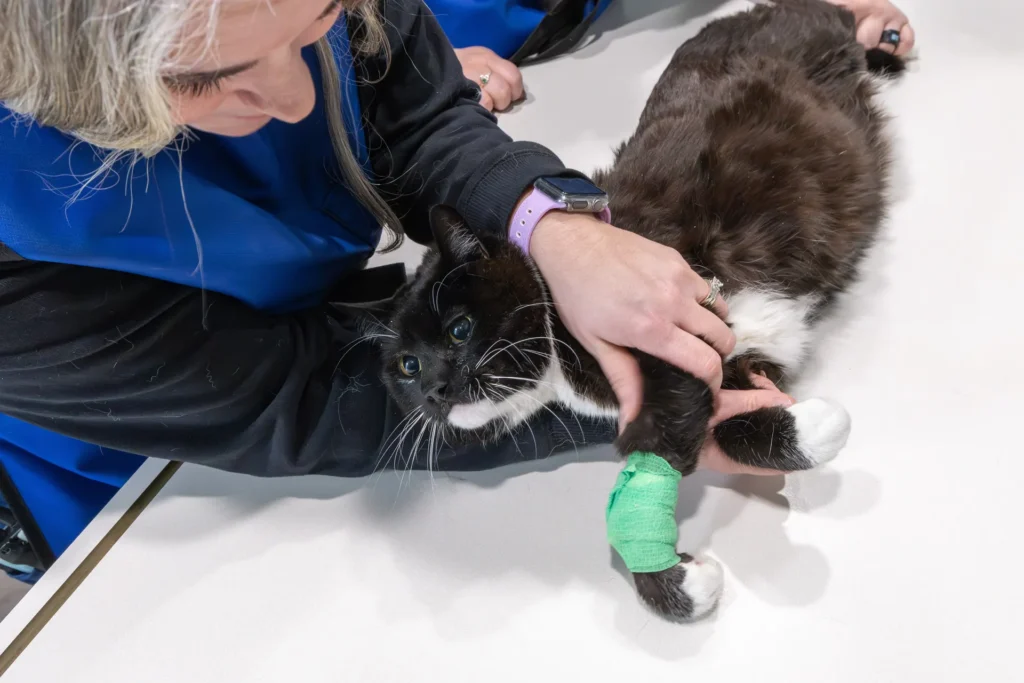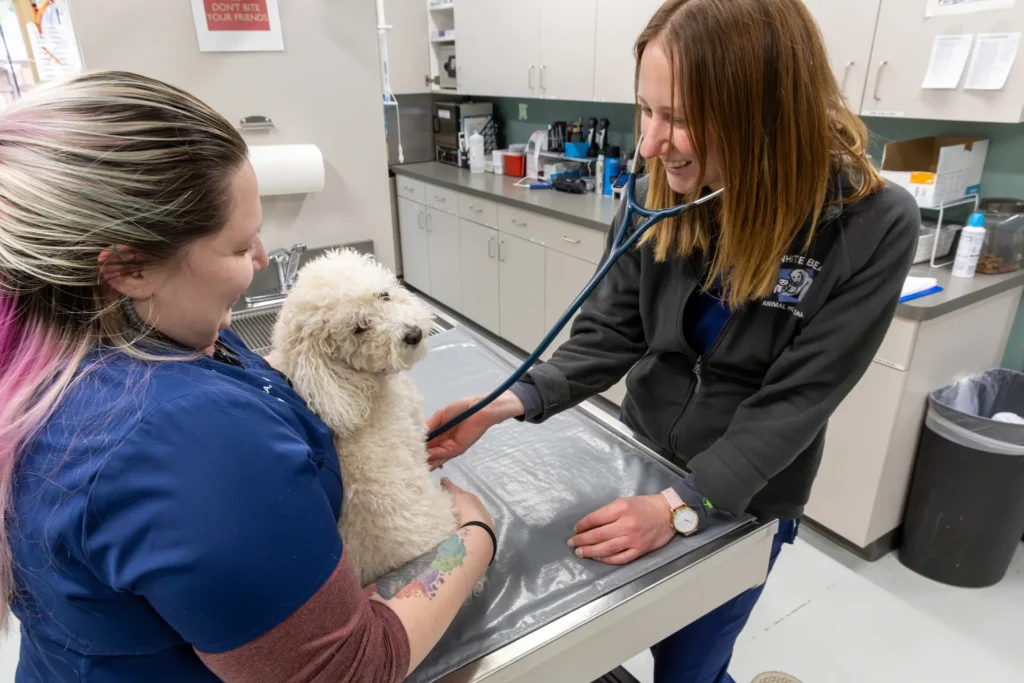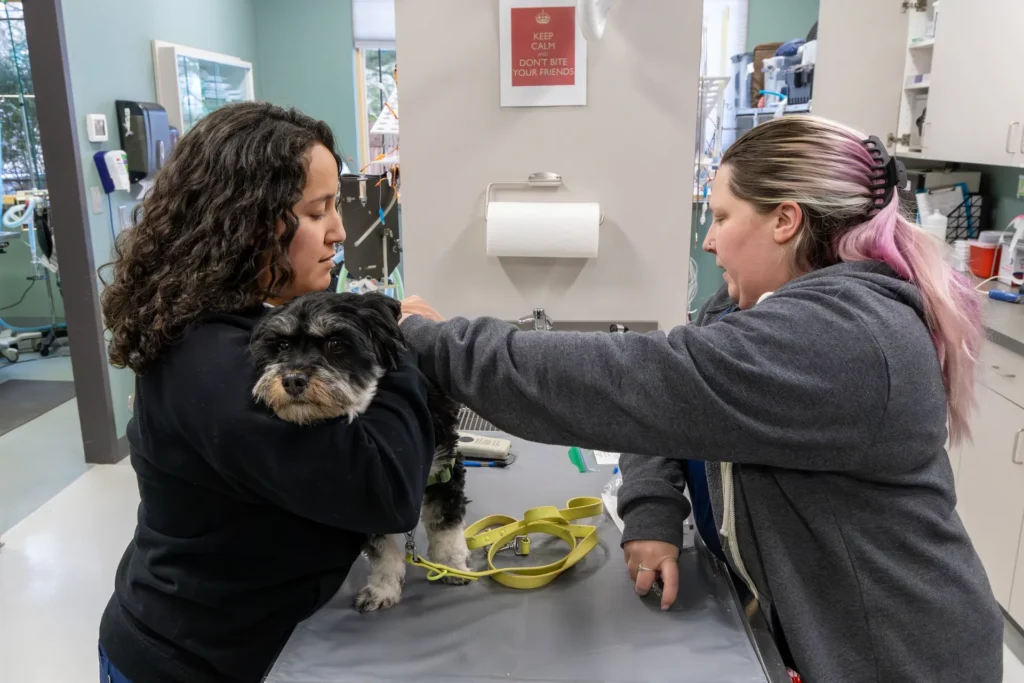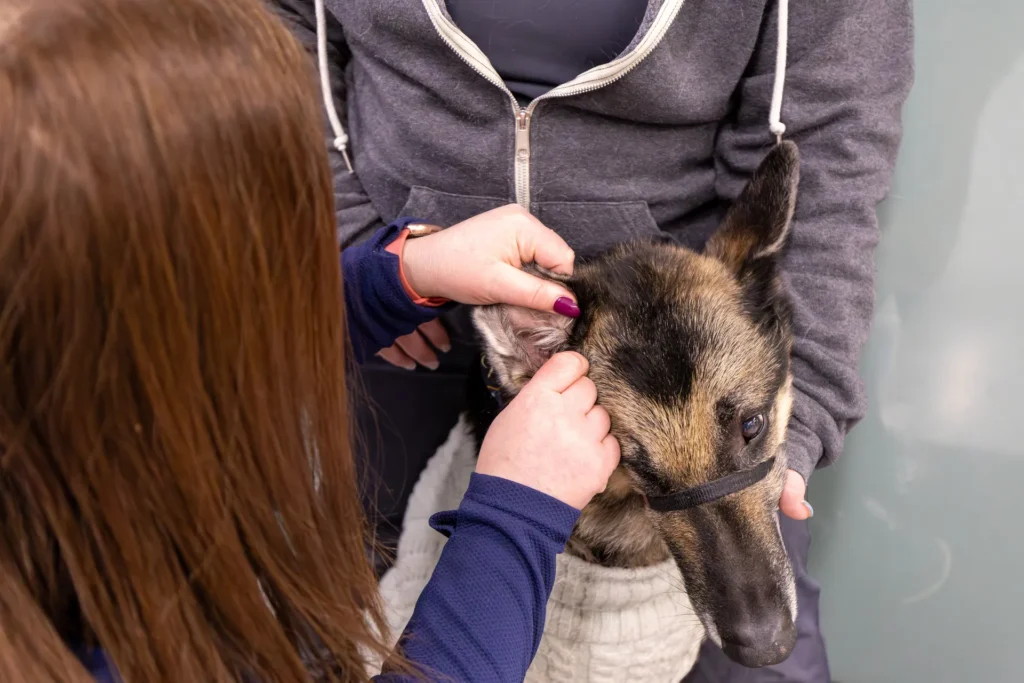Routine Surgery
Routine surgeries like spays, neuters, and benign mass removals play an important role in your pet’s overall health. These procedures can prevent certain diseases, reduce unwanted behaviors, and improve your pet’s quality of life.
Why Choose White Bear Animal Hospital for Routine Surgery:
- Experienced Veterinarians: Our team has extensive expertise in standard surgical procedures.
- Safe Anesthetic Protocols: We meticulously monitor heart rate, rhythm, blood pressure, and oxygen/CO2 levels.
- Compassionate Care: Pain management is tailored to each pet, minimizing post-operative discomfort.

By addressing surgical needs early, we help your pet stay on the path to a long and healthy life.
What we offer as part of our Routine Surgery
Spay & Neuter
Mass (Tumor) Removals
Post-Operative Pain Management
Frequently Asked Questions
At what age is it best to spay or neuter my pet?
Many pets are spayed/neutered around 6–9 months, but timing can vary based on breed and health status. We’ll guide you to the best timeframe.
What pre-surgery steps should I follow (like fasting)?
Most pets need to fast overnight—no food after midnight—to reduce anesthesia-related risks. We’ll provide specific instructions for your pet.
How long is the typical recovery for spay/neuter surgery?
Many pets recover within 7–10 days, though activity restrictions may be recommended for two weeks to ensure proper healing.
Will my pet need pain medication after routine surgery?
Yes, we’ll provide safe pain control options to keep your pet comfortable during recovery.
Are there any behavioral benefits to spaying/neutering?
Spaying/neutering can reduce unwanted mating behaviors and may lower aggression, roaming, and marking in some pets.
Other services

Wellness Exams

Vaccinations for Dogs & Cats

